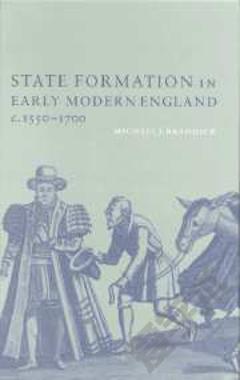State Formation in Early Modern England, c.1550–1700
This book examines the development of the English state during the long seventeenth century, emphasising the impersonal forces which shape the uses of political power, rather than the purposeful actions of individuals or groups. It is a study of state formation rather than of state building. The author's approach does not however rule out the possibility of discerning patterns in the development of the state, and a coherent account emerges which offers some alternative answers to relatively well-established questions. In particular, it is argued that the development of the state in this period was shaped in important ways by social interests - particularly those of class, gender and age. It is also argued that this period saw significant changes in the form and functioning of the state which were, in some sense, modernising. The book therefore offers a narrative of the development of the state in the aftermath of revisionism.
{{comment.content}}








 京公网安备 11010802027623号
京公网安备 11010802027623号